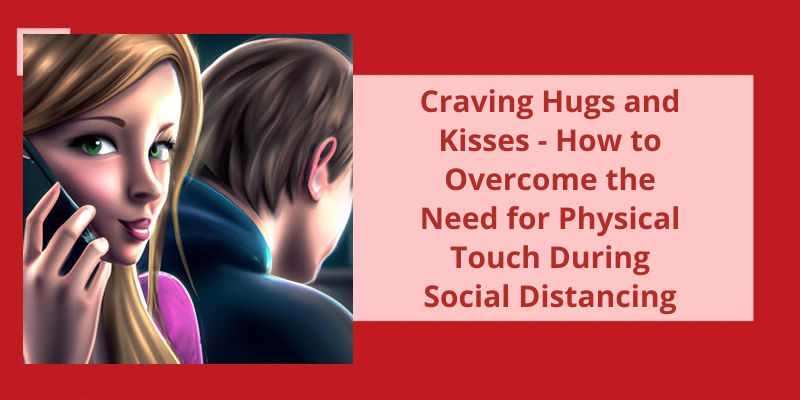When faced with the profound and agonizing experience of being subjected to the silent treatment for an extended period of time, one finds themselves traversing a treacherous emotional landscape. This harrowing journey, endured at the hands of a narcissist, can last not merely hours, days, or weeks, but stretch into the realm of months. The insidious nature of the silent treatment is only surpassed by the psychological toll it exerts on the recipient, as they grapple with feelings of confusion, frustration, and isolation. It’s imperative, in the face of such emotional withdrawal, that one remains steadfast and resolute, refusing to succumb to the manipulative tactics employed by the narcissist to bring this cycle of silence to an end. For within the power of the silent treatment lies the ability to survive and emerge, stronger and more resilient than before.
Does the Silent Treatment Ever End?
The silent treatment, a form of emotional withdrawal, can be an incredibly painful experience for those on the receiving end. It’s a method of communication that involves deliberately ignoring or refusing to engage with another person, often as a way to express anger, frustration, or manipulation. While it can be a highly effective means of exerting control and causing emotional distress, it’s vital to explore whether this behavior will ever come to an end.
While it’s impossible to predict whether the silent treatment will eventually end, it’s crucial to recognize that it’s prolonged use is a sign of deeply rooted relationship issues. The decision to actively ignore or withhold communication for an extended duration suggests a willingness to prioritize control and power dynamics over healthy relationship dynamics. It indicates a disregard for the emotional well-being of the other partner and a lack of effort to address and resolve conflicts in a constructive manner.
Surviving months of emotional withdrawal can be an arduous task. It’s important for the person experiencing the silent treatment to prioritize their own mental health and seek support from trusted friends, family, or mental health professionals. It may also be necessary to examine the underlying issues and dynamics within the relationship, considering whether they’re healthy, respectful, and conducive to personal growth. Ultimately, the decision to end the silent treatment and rebuild the relationship rests in the hands of both parties involved, as it requires open and honest communication, a willingness to address underlying problems, and a commitment to change and growth.
The Psychological Effects of the Silent Treatment on the Recipient
The silent treatment can have profound psychological effects on the recipient. Being subjected to prolonged emotional withdrawal can lead to feelings of isolation, worthlessness, and confusion. The silent treatment creates a sense of powerlessness as the recipient is left without clear communication or resolution. It can erode self-esteem and self-confidence, making it difficult for the recipient to trust others or express their feelings openly. Additionally, the uncertainty and anxiety caused by the silent treatment can contribute to mental and emotional distress over time. It’s essential to recognize and address the damaging effects of the silent treatment to maintain healthy relationships and emotional well-being.
How Long Should I Accept the Silent Treatment?
When faced with the silent treatment in a relationship, it’s natural to wonder how long one should tolerate such behavior. However, it’s important to remember that the silent treatment isn’t a healthy or effective way to resolve conflicts. Effective communication and open dialogue are the key to resolving issues in any relationship.
It’s crucial to not let the silent treatment stretch on for days, weeks, or even months. By allowing such behavior to persist, it gives power to the person withholding communication and can create a cycle of emotional manipulation. This unhealthy dynamic can further damage the relationship and erode trust and intimacy.
Instead of accepting the silent treatment for an extended period, it’s important for both partners to make a concerted effort to reconnect and address the issues at hand. This may require seeking professional help, such as couples therapy, to facilitate productive and open communication.
By setting clear boundaries and expressing the need for open and honest dialogue, partners can work together to find resolution and build a stronger foundation for their relationship. It’s essential to prioritize emotional well-being and not allow the silent treatment to prolong suffering for either party.
While it may be tempting to wait patiently for the person giving the silent treatment to come around, it’s important to remember that healthy relationships require mutual respect and effective communication. If efforts to reconnect and work through the issues prove fruitless, it may be necessary to reevaluate the relationship altogether. Ultimately, everyone deserves to be in a relationship where they feel heard, valued, and respected.
Source: Does the silent treatment work and how long does it have …
The duration of a silent treatment can be incredibly long, stretching from hours to months, particularly when dealing with a narcissist. This cruel tactic involves completely cutting off communication with someone who’s open to resolving issues, causing immense emotional distress. Let’s explore why the silent treatment can persist for such extended periods and the damaging effects it can have on it’s recipients.
Can Silent Treatment Last for Months?
Can silent treatment last for months? If you didnt know already, the silent treatment is when someone refuses to communicate verbally and/or electronically with someone who’s willing to communicate. A narcissists silent treatment can last for hours, days, weeks, or even months. It’s a manipulative tactic used by narcissists to gain control over their victims and exert power in the relationship.
The silent treatment can be incredibly damaging to the victims emotional well-being. Being ignored and shut out by someone you care about can create feelings of rejection, isolation, and self-doubt. It can leave you questioning your worth and constantly trying to figure out what you did wrong to deserve such treatment. The longer the silent treatment lasts, the more intense these emotions become.
When the silent treatment extends for months, it becomes an emotional marathon for the victim. The constant uncertainty, anxiety, and stress can take a significant toll on their mental health. It can lead to depression, anxiety disorders, and even post-traumatic stress disorder (PTSD) in extreme cases. The prolonged period of emotional withdrawal makes it challenging for the victim to heal and move on from the toxic relationship.
From the narcissists perspective, the extended silent treatment serves as a way to control and manipulate their victim. By withholding their attention and affection, they can exert power over the victim and force them into submission. It becomes a power play, where the narcissist feels a sense of superiority and dominance. They enjoy the emotional torment they inflict on their victim and derive pleasure from their suffering.
Surviving months of emotional withdrawal requires strength, resilience, and a support system. It’s crucial for the victim to recognize that they don’t deserve such treatment and that it’s a reflection of the narcissists unhealthy behavior, not their own worth. Seeking therapy can be beneficial in navigating the emotional aftermath of the silent treatment and establishing healthy boundaries in future relationships.
Surviving such emotional withdrawal is a daunting task, but with the right support and self-care, it’s possible to heal and move forward. Remember that you deserve love, respect, and open communication in your relationships, and don’t settle for anything less.
How to Spot Manipulative Behavior in Relationships Before It Escalates to the Silent Treatment.
- Watch for patterns of inconsistent behavior
- Pay attention to avoidance or defensiveness
- Notice excessive blaming or shifting responsibility
- Look out for gaslighting tactics
- Be cautious of the silent treatment as a form of manipulation
- Observe emotional manipulation and guilt trips
- Recognize attempts to isolate and control
- Trust your instincts and listen to your gut feelings
- Seek support from friends, family, or a therapist if needed
- Safeguard your emotional wellbeing and set boundaries
It’s crucial to approach the end of the silent treatment with caution, taking into account the need for clear communication and respect for personal boundaries.
What to Do When Silent Treatment Ends?
When the silent treatment finally comes to an end, it’s important to tread lightly and cautiously. The aftermath of this prolonged emotional withdrawal can be tricky to navigate, as emotions might still be raw and unresolved. It’s crucial to approach the situation with simplicity and clarity. It might be tempting to dive into deep, complex discussions right away, but it’s wise to start by clearly stating your boundaries.
Choose your words carefully and avoid emotional minefields. Rather than getting caught up in pointing fingers or rehashing old arguments, focus on expressing how you felt during the silent treatment period. Discuss how the lack of communication affected you, without attacking or blaming the other person. By keeping the conversation centered on your own feelings, you prevent it from becoming confrontational or defensive.
Acknowledge that the silent treatment might have been a signal that both parties needed some space to sort things out. It’s important to recognize that during this period of silence, both individuals may have been processing their own emotions and thoughts. By acknowledging this need for space, you create a safe environment where open communication can eventually flourish.
Once you’ve expressed your boundaries and concerns, encourage the other person to do the same. Give them the opportunity to share their thoughts and emotions without interruption or judgment. Active listening is key during this stage, as it shows that you genuinely care about their perspective and are committed to resolving any underlying issues.
Remember that building trust and reestablishing healthy communication takes time. Be patient and allow the process to unfold naturally. It’s also essential to set realistic expectations and understand that progress may be slow. Above all, strive for open, honest, and respectful communication as you move forward from the silent treatment.
When someone purposely gives you the silent treatment for months on end, it’s worth considering whether this behavior constitutes emotional abuse. While it may initially seem like a temporary form of communication avoidance, the prolonged duration of this treatment can be a red flag. Recognizing other warning signs of emotional abuse in your relationship is crucial to understanding the larger dynamics at play.
When Someone Gives You the Silent Treatment for Months?
When someone gives you the silent treatment for months, it can be an extremely painful and emotionally distressing experience. The silent treatment is a form of emotional manipulation where one person intentionally withdraws communication and ignores the other person as a way of exerting control and expressing their disapproval or anger. Although it may seem like a tactic used to gain power, it can gradually evolve into a form of emotional abuse if left unchecked.
Using the silent treatment as a form of control is abusive because it denies the other person their right to express themselves and be acknowledged. It effectively silences and disregards their feelings, leaving them feeling invalidated and invisible. Over time, this can erode the victims self-esteem and sense of worth, as they constantly question their own actions and blame themselves for the withdrawal of communication.
In addition to the silent treatment, there are other warning signs of emotional abuse that you should be aware of. These can include constant criticism and humiliation, gaslighting, isolation from friends and family, controlling behavior, and threats of harm or abandonment. It’s important to trust your instincts and seek support if you find yourself in a relationship characterized by these behaviors.
Remember, you deserve to be treated with respect, kindness, and open communication. If you’re experiencing the silent treatment or any other form of emotional abuse, it’s essential to reach out to trusted friends, family, or professionals who can offer guidance and support.
The Effects of Long-Term Silent Treatment on Mental Health
The silent treatment, when used as a form of emotional withdrawal over an extended period, can have detrimental effects on one’s mental health. Being consistently ignored or denied communication by a loved one can lead to feelings of rejection, isolation, and a loss of self-worth. The lack of emotional validation and connection can result in anxiety, depression, and low self-esteem. Long-term silent treatment can also make it difficult for individuals to trust others and form healthy relationships in the future. It’s crucial to seek support and address the emotional impact of prolonged silent treatment to safeguard one’s mental well-being.
Conclusion
In conclusion, enduring months of emotional withdrawal through the silent treatment can be an incredibly challenging and draining experience. The lengthy duration of a narcissist's silent treatment adds another layer of complexity and pain to the situation. Nevertheless, it’s vital to recognize and resist their manipulative tactics, maintaining your own emotional well-being and self-worth. By understanding the power dynamics at play and focusing on self-care, one can navigate through this difficult period and ultimately break free from the toxic cycle of manipulation. Remember, you deserve to be treated with respect and dignity, and no amount of silence should undermine your worth.






